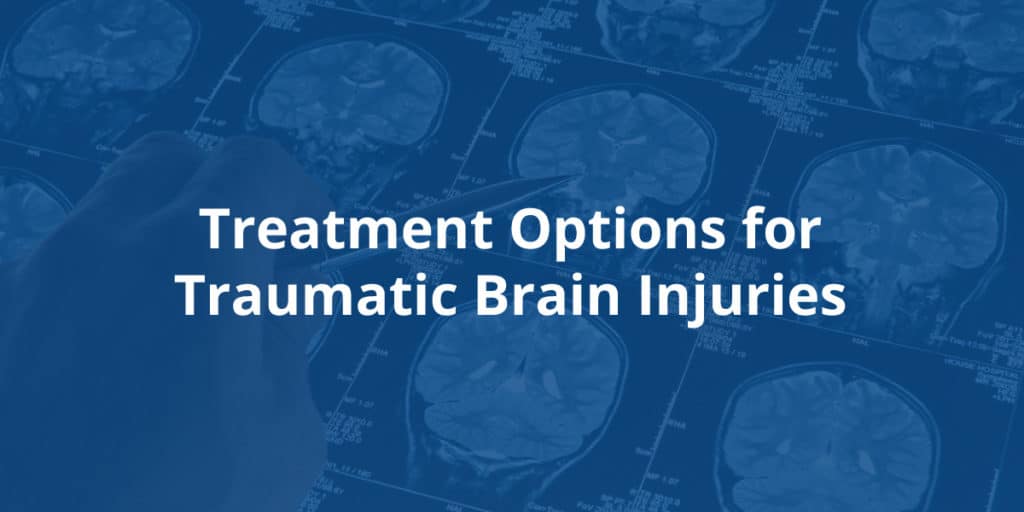
There are a variety of treatment options for those who have suffered a traumatic brain injury, and medical professionals will always hone in on recovering a patient’s physical, emotional and cognitive capabilities after such serious brain injuries. Treatment types and the overall extent of treatment will vary depending on the severity of the patient’s injuries, and the specific location within the brain in which the injury affected.
Our team of experienced personal injury attorneys has decades of experience handling all sorts of personal injury cases, and TBI cases have continuously been a significant portion of our past results. We understand the financial and emotional magnitude that a traumatic brain injury can have on the patient and their loved ones, which is why we’re always here to assist you in terms of identifying your injury’s damages and obtaining your maximum rightful compensation.
If you or a loved one has suffered a brain injury that was caused by someone else’s negligence, then you’ll undoubtedly have a case for compensation to assist you throughout your medical treatment and overall rehabilitation process. On this page we’ll be discussing the many treatment options that are available to TBI victims that all patients and family members should be aware of, and as always feel free to reach out to us for a free consultation so we can go over the details of your injury and begin the initial steps towards obtaining your rightful compensation.
A mild TBI is sometimes referred to as a concussion, which could potentially only require rest as the primary treatment option. But, it’s always crucial for concussion patients to meticulously follow the instructions from their medical team for a complete resting period and a gradual return to physical activities after mild TBIs. If an athlete or any individual resume their normal activities too quickly after a concussion, the overall recovery process can ultimately take a lot longer than initially expected.
Even activities that aren’t physically demanding like working on a computer and simply concentrating hard can be tiresome for the brain after a concussion. Concussion victims must remain cognizant of their resting periods throughout each day of their recovery, and must also refrain from any drug or alcohol use that can slow rehabilitation times down dramatically.
Children and teenagers who sustained a sports-related concussion should only return back to the action when they’ve received permission from a medical professional that has experience in evaluating concussions. Any type of re-injury during the concussion recovery period can make the chances for TBI long-term problems much higher.
There are many cases in which emergency care is necessary to stabilize a TBI patient after an accident and help promote their chances for survival. This type of medical care can include ambulance services ensuring that the patient’s brain is receiving an adequate amount of oxygen flow, controlling the patient’s blood pressure and helping to prevent any further injury to the neck or head.
Once a TBI patient has been successfully stabilized, they can then be admitted to other types of TBI care, which many times may include immediate surgery. Emergency surgery is many times necessary in order to reduce the accumulation of brain tissue damage, and some TBI surgeries include the following:
There are several different types of medications that are used to help alleviate TBI symptoms. These medications include, but are not limited to, the following:
There are countless TBI researchers around the world who continue to explore the best medication options to assist in the TBI recovery process. One example of this is the NICHD’s citicoline study. Citicoline is a drug that’s overall purpose is to protect the functionality of a patient’s neurological network, but the research for citicoline as a TBI medication is still ongoing as studies have shown mixed results on its overall effectiveness.
There are many different types of TBI therapies that help patients to relearn all sorts of life skills. The length of rehabilitation will primarily depend upon the severity of the TBI, but in the most severe cases rehabilitation can be an ongoing process that remains relevant for years or even decades.
TBI therapy will usually begin in a hospital, but it can continue to a variety of different settings like an outpatient clinical program, a skilled nursing facility, at school, or the patient’s home. TBI rehabilitation typically will require multiple medical specialists, the patient’s family, and an individual who manages the treatment team.
Some of the different types of TBI rehabilitation therapy include the following:
We are a team of Silver Spring, Bowie, College Park, Landover, and Upper Marlboro Injury & Accident Attorneys who have decades of experience when it comes to handling TBI personal injury cases and assisting families throughout the rehabilitation process.
We know how tough it is on TBI patients and their families to get their lives back on track after such debilitating brain injuries, and we’re here to help ensure that any and all negligent entities are held accountable for any injuries they may have caused you or your loved one.
The TBI treatment process is extensive and requires the assistance of both medical and legal experts in order to ensure that your family isn’t stuck with drastic, undeserving medical bills. Contact us today for a free consultation so we can go over the details of your injury to begin the initial steps towards legal action, and allow you and your family the peace of mind you need during such troubling treatment processes.
Filed Under: